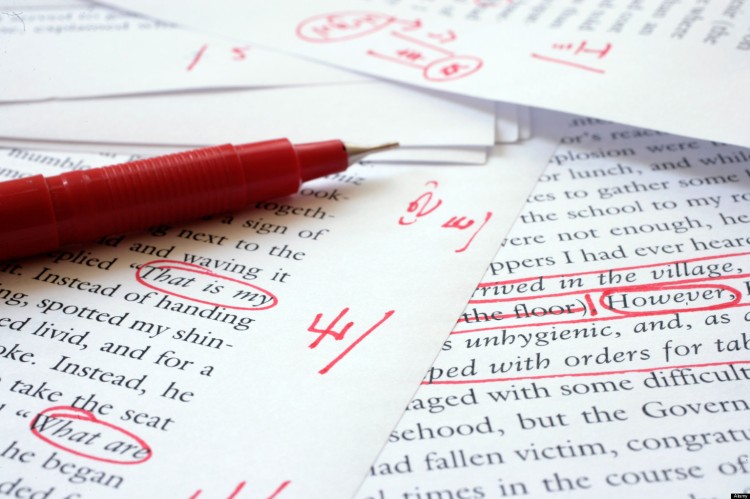When writing it’s easy to go overkill on the description. I was once told by a tutor of mine that sometimes less is more, and I think that’s one of the most valuable pieces of information I’ve ever learnt. Sometimes when you edit your work you’ve just got to cross through all the adverbs and half the adjectives – it will make it immediately stronger. My tutor also had an issue with prepositions (e.g. on, in, beside) so you might want to consider whether yours are strictly necessary or not.
Over-describing particularly becomes an issue when you’re trying to portray something happening quickly. Immediacy is automatically slowed down by inserting the extra word ‘quickly’ or ‘suddenly’, making it not so quickly or suddenly after all. You’re better off choosing a more interesting verb, for example, ‘raced’ instead of ‘ran’, rather than slowing down your sentences by adding adverbs.

The trick of really great writing is being concise. If you strip back everything that is unnecessary – all the adjectives, adverbs, prepositions, plus anywhere you have the verb ‘to be’ – then you’ll see what you’re left with. ‘To be’ is a crucial one since it’s sometimes hard to spot but repetitive ‘the room was cold’, ‘the room was dark’, ‘the room was white’, gets very boring very quickly. And if what you’re left with when you’ve brutally red-penned your piece of writing is very basic stuff then that’s where you need to improve.
Some people say you can’t teach creative writing and in a sense I agree, because I believe you can’t teach creativity, but what you can teach is writing. You can teach good grammar, good punctuation and how to be concise. These are learned things, and once you establish them I believe you’re on the road to success.
That’s all from me, I’m off to go and cut out all over-description from my stories, so ciao!